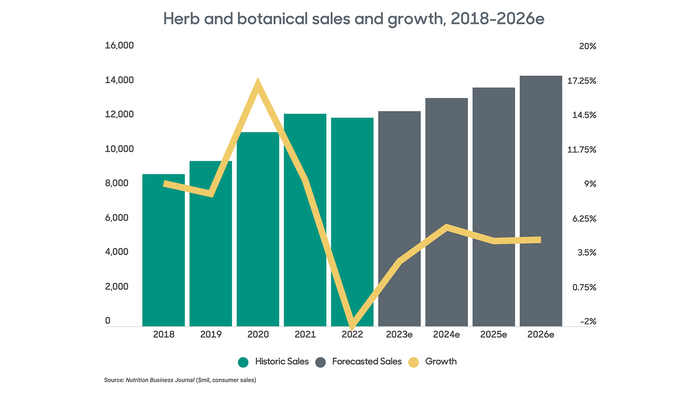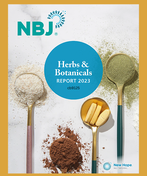
In 2022, the overall supplement industry experienced the lowest ever recorded growth in NBJ history at 1.9%, an obvious market correction from the 2020 COVID-19 boost but also from an unstable economic climate. A lot of supplement categories suffered in 2022, one of those being the herbs and botanicals market, which saw also saw a historic low at negative 1.9%. Before COVID, herbs and botanicals market growth hovered around high single digits, but with a significant more amount of dollars added to the industry, that future growth will look slightly different.
In 2023, NBJ estimates herb and botanical supplement growth to increase to 3.2% and to be above total supplement industry growth into 2026, creating more of a gap as the years go on. Some growth drivers within this category include giants like ashwagandha, mushrooms and even smaller players like kava kava. For 2023, ashwagandha is estimated to grow at 13.9%, mushrooms is slightly above at 16.9% and kava kava coming in at 7.5%.

While 2022 showed a setback for the herbs and botanicals category and lowered NBJ pre-COVID predictions, growth is estimated to regain strength and increase to 5.9% in 2024. It will be interesting to see if trending ingredients that have provided such strong growth the past few years will maintain that momentum, or if a different ingredient will take the limelight and win consumer’s attention. NBJ will keep a close eye on this category to see which key players will bring the category back into the game.
 To learn more about the herbs and botanicals supplements market, click here to preview and purchase Nutrition Business Journal’s 2023 Herbs and Botanicals Report.
To learn more about the herbs and botanicals supplements market, click here to preview and purchase Nutrition Business Journal’s 2023 Herbs and Botanicals Report.
About the Author
You May Also Like





